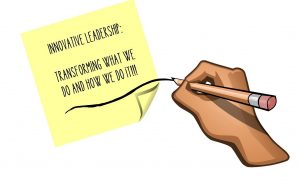
Stressed brains don’t learn the same way.
John Medina – Molecular Biologist
When we talk about change, most of the times we think about self-transformation and bring us positive emotions but also fear and anxiety. At the same time is empowering us to change things in our lives. Often we also have access to an immense amount of self-help books where we will find many recommendations and suggestions to enjoy an awesome life.
When we talk about organizational transformation, this occupies a different emotional space in our minds. As soon as we listen those words, “our organization is going to start a transformation process”, immediately we think lay off. We would like to run out of that, hide our heads into the sand. Organizations are continuously changing technologies, expanding and growing the businesses and in many other factors.
It is really true that our organizations are always adapting and we are in a called age of continuous transformations. And you know, we are tired of this situation, always changing and transforming our organizations in the way we do it.
I wonder why transformations are wiping out us and how we should face them in a different way. At the same time, I know that change is hard, especially when change is imposed and changes could be less hard if leaders would manage it differently.
If leaders reacted faster, changes could be less dramatic because the circumstances wouldn’t be so hard and difficult to turn around. If we let companies finally go deep into a crisis, to recover back the health of them it will be much harder, complex and changes will be more painful for everybody.
These moments bring the organizations to focus mainly in the short term, so it is very arduous to give back a positive balance and look into the future with enthusiasm and hope.
So, what can we do? How can we face an organization transformation with power and energy?
The most influencing and persuading way to be successful with a transformation process is putting people first.
Most of the transformation processes have very important financial and operational goals. This can be very inspirational for leaders, but they won’t be very motivational goals for most of the employees in the organization. It is also common that transformations are headcount cutting to downsize companies with the main target to reduce costs and bounce back to a healthy situation.
This is not the only solution for organizations. Rather than cutting costs, we should pursue for initiatives. Initiatives that can make to win in the medium or long term run. Initiatives to drive growth. Everything is possible to modify what will make the organization to operate in a different way. And overall all kind of investments that can contribute to develop the talent and leadership of our employees.
Putting people first is very important to enable them with the capabilities that they need in that transformation period to be successful. Every transformation requires different tools, technics, skills, capabilities, so when we face one transformation it is very important that we provide to our employees with the right tools and skills.
Our organizations have their own cultures, but we must instill them with a right dose of learning skill. We need that our organizations are ready to experience what it is continuous learning. This is one of the biggest reasons that can bring success in an organization that is transforming. If we do this change in our cultures, we will transform the fixed mindset of our organization in one growth mindset. Our leaders for sure will behave in a very different way with that change.
Our leaders that are managing a change management process, at the end transformations, need to have a vision, a clear roadmap and then to have a great and cohesive team. This team should be excel managing conflict, achieving commitments and embracing accountability. For it, we need open, welcoming, comprehensive leaders.
In this age of changes and transformations we need to change the way we transform organizations and the only way to do that successfully is putting people first.Las Mentes Estresadas no aprenden de la misma manera.
John Medina – Biólogo Molecular






